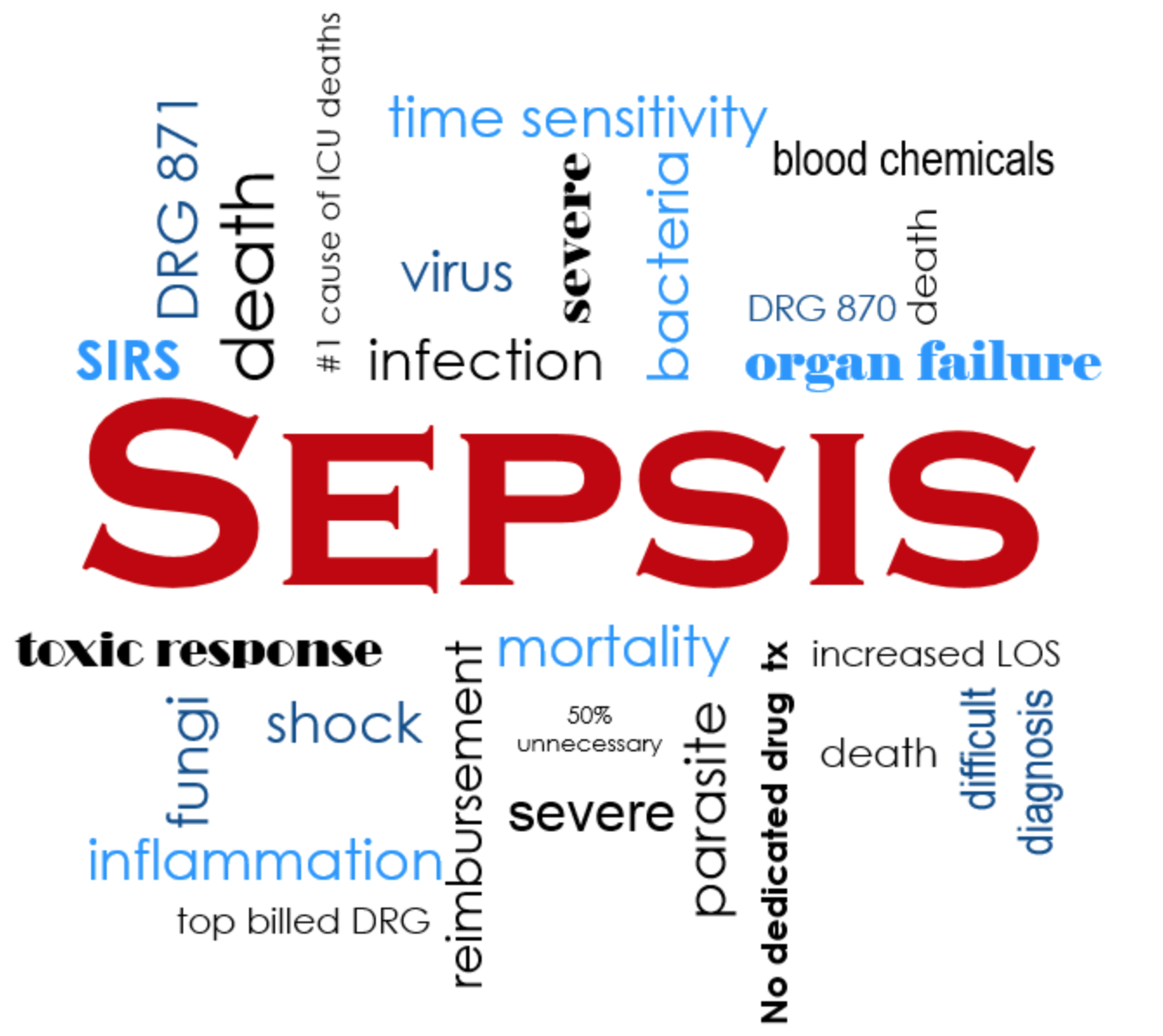Sepsis (also known as “blood poisoning”) is one of the most dangerous and
devastating conditions we encounter in medical malpractice cases. The
Pennsylvania Patient Safety Authority
has designated September as “Sepsis Awareness Month” to warn the public about this deadly
condition.
In this article, we will discuss sepsis and why it is important for
medical providers to pay attention to early signs and symptoms so intervention
and treatment can be made as soon as possible.
At the Law
Office of Alvin F. de Levie, Esq., we have represented individuals and
families in medical malpractice cases involving sepsis for many, many years
throughout the Commonwealth of Pennsylvania, including, for example, Montgomery
County, Philadelphia County, Centre County, Bucks County, Chester County,
Delaware County, Lehigh County, Clearfield County, and Fayette County, to name
a few. Our team of lawyers has the expertise, the resources, the experience in
handling complex medical malpractice cases and reviewing medical records to
determine if, how and why medical providers missed signs of developing sepsis
or failed to adequately treat sepsis.
What is Sepsis?
The Centers for Disease Control defines sepsis as “the body’s extreme
response to an infection.” Essentially,
in response to being overwhelmed by infection, whether bacterial or viral, the
immune system gets out of control, releasing large amounts of chemicals into
the blood and triggering inflammation in the affected area that can destroy tissue
and cause organ failure. This is why
sepsis is sometimes referred to as “blood poisoning.” Without proper diagnosis and treatment,
sepsis can cause catastrophic injuries such as multiple amputations and, in
some cases, death.
The CDC estimates approximately 1.7 million people develop sepsis each
year, that approximately 270,000 people die as a result, and that a massive 1
in 3 patients who die in hospitals have sepsis.
What are the Symptoms of
Sepsis and How can it be Treated?
Whenever a patient is
suffering from a viral or bacterial infection or facing a situation which could
lead to such an infection, medical providers must carefully monitor patients
early and continuously for signs and symptoms of developing sepsis, which may
initially appear to be mild. Early detection is often the key to treating the
condition before sepsis sets in and spirals out of control.
At first, a patient developing
sepsis may suffer a general sense of not feeling well, have a slightly
increased temperature, shivers or an increased heart rate. As sepsis progresses, however, the symptoms
become more severe. According to the Mayo Clinic, symptoms of advancing sepsis include:
- Difficulty breathing and respiratory rates
higher than or equal to 22 breaths a minute;
- Abnormal heart function;
- Low blood pressure that requires medication to
increase and maintain;
- A sudden change in mental status/alertness; and
- High levels of lactic acid in your blood, which
indicates your cells are not using oxygen properly.
If sepsis is identified early,
the infection the body is responding to can typically be treated with
anti-virals, antibiotics and other such treatments. These treatments help to
combat the infection and tame both the immune system’s reaction to the infection
and the inflammatory response it causes, thereby lessening the likelihood of
developing advanced sepsis.
Unfortunately, medical
providers sometimes ignore or fail to appreciate how an infection is getting
out of control, leading to sepsis. In some cases, medical personnel fail to
take proper readings, monitor their patients, and perform simple tests, such as
checking blood oxygen levels. In other cases,
medical providers may prescribe medications that are contraindicated,
increasing the risk that a viral or other infection will be worsened, leading
to the development of sepsis. Medical providers need to be especially careful
to closely monitor patients with pre-existing conditions which make it
difficult for their bodies to handle infection, such as those with diabetes and
immune disorders.
What Kind of Injuries
Can Sepsis Cause?
Sepsis can cause a number of
serious and catastrophic injuries, including:
- Cognitive issues:
Advanced sepsis
can cause low blood pressure and inflammation in the brain. This can lead to damage to the brain tissue,
ultimately causing severe cognitive dysfunction, such as memory loss and other
mental impairment.
- Gangrene:
The decreased blood flow
and destruction of tissue caused by advanced sepsis can cause tissues,
particularly in extremities like the hands and feet, to die and become
gangrenous.
- Amputation:
When extremities
become gangrenous as a result of sepsis, they often must be amputated in order
to prevent the spread of infection to other parts and systems of the body.
- Organ Failure:
The decreased blood
flow and tissue damages caused by advanced sepsis can cause organs and organ
systems to incur heavy damage, sometimes shutting down entirely. Damage to the kidneys and lungs is most
common in advanced sepsis cases, and it is not uncommon for victims of sepsis
with otherwise normal kidney function to end up on dialysis for the rest of
their lives.
- Death:
Advanced sepsis can cause
blood flow and organ system failure that eventually leads to cardiac arrest
(i.e., heart attack) and death.
What
Should YOU Do If You, A Loved One Or A Friend
Suffers Injuries or Death Caused by Sepsis?
YOU SHOULD CONTACT MY OFFICE
IMMEDIATELY.
Like all medical malpractice
cases, cases involving sepsis are incredibly complex and require an
extraordinary amount of investigation. Your attorney may need to obtain and
review thousands of pages of medical records, which will then need to be
reviewed by an expert. This is an
expensive and time-consuming process that must begin as soon as possible to
determine whether you have a claim. You also need an attorney with a thorough
knowledge of the practice of medicine and the resources and experts necessary
to take the case to trial, if necessary.
At the Law Office of
Alvin F. de Levie, Esq., our team of attorneys has decades of experience representing individuals
and families injured due to medical malpractice and sepsis. We
have handled medical malpractice cases throughout Pennsylvania: From
Philadelphia and the surrounding counties to Centre County, from Central
Pennsylvania to Pittsburgh, and from the New York border to the borders of West
Virginia and Maryland. If you have
suffered an injury or someone died as a result of sepsis, please call our firm
– 24 hours a day, 7 days a week – at (215) 696-3900 for a consultation. One of our team members will be in immediate
contact with you. We maintain offices
throughout Pennsylvania in Philadelphia, State College and Bellefonte. We are
willing to meet any clients throughout the Commonwealth.






























